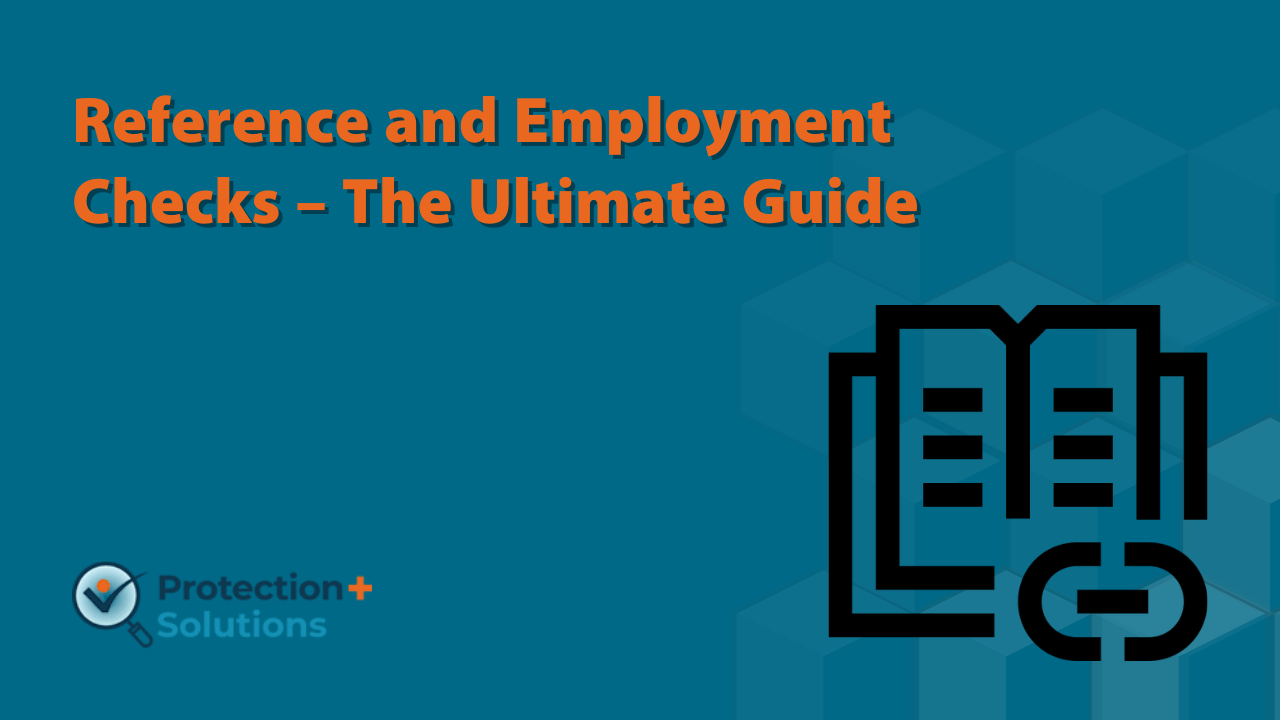Reference and Employment Checks – The Ultimate Guide

Ever felt anxious waiting for your reference or employment checks to clear before starting a new job? You’re not alone. These checks are critical steps in modern hiring. But what exactly do they involve, and how do they impact you or your organisation? Let’s break it down.
What are Reference Checks?
Definition of Reference Checks
Reference checks are when employers contact people you’ve worked with before to ask about your skills, performance, and attitude. It’s like checking reviews before buying a product – employers want to ensure they’re making a good investment.
Why Employers Conduct Reference Checks
Employers do this to confirm that what you’ve said in your CV and interviews is true. It also helps them understand how you behave at work, how reliable you are, and whether you’d fit into their team culture.
What are Employment Checks?
Definition of Employment Checks
Employment checks are broader than reference checks. They involve verifying your background, criminal record, right to work, and sometimes even your qualifications.
The Difference Between Reference and Employment Checks
Think of reference checks as asking about your character and performance, while employment checks confirm your identity, legal status, and background. Both are important, but they serve different purposes.
Benefits of Reference Checks
Validating Candidate Information
They ensure candidates haven’t exaggerated their skills or experience. A quick call to a referee can save companies from costly hiring mistakes.
Assessing Cultural Fit
Referees often share insights about how candidates work with others, handle pressure, or adapt to change – key to cultural fit.
How to Conduct Effective Reference Checks
Preparing Questions
Avoid vague questions. Ask referees about specific skills, reliability, teamwork, and areas for development to get meaningful insights.
Contacting Referees
Reach out politely and at convenient times. Remember, they’re doing a favour by sharing their honest feedback.
Analysing Responses
Don’t take every word at face value. Look for patterns across referees to make informed decisions.
How to Conduct Effective Employment Checks
Using Reliable Screening Services
Partner with reputable screening companies to ensure thorough, compliant checks.
Handling Sensitive Information
Always protect candidates’ data. Only gather information directly relevant to the role and comply with data protection laws.
Common Challenges in Reference and Employment Checks
Unresponsive Referees
Sometimes referees don’t reply quickly. Candidates should always inform their referees in advance to avoid delays.
Inconsistent Information
If a reference contradicts a CV, it can raise red flags. Employers should clarify discrepancies with the candidate before making decisions.
Legal and Ethical Considerations
Consent and Data Protection
Always get written consent before conducting checks. Misusing candidate data can lead to legal consequences and reputational damage.
Discrimination Risks
Ensure checks are relevant to the job. For example, a criminal record check should only be used if convictions directly impact job responsibilities.
Reference and Employment Checks in Remote Hiring
Adapting Processes Digitally
Digital reference and employment checking services streamline remote hiring, ensuring fast and compliant verification.
Global Employment Screening
Hiring across borders? Be aware of local laws about background checks and data privacy before screening international candidates.
Tips for Candidates Regarding Checks
Choosing Strong References
Select referees who know your work well and will speak positively about you. Keep them updated about your job applications.
Preparing for Employment Screening
Have your documents ready – proof of ID, qualifications, and right to work. It speeds up the process and shows professionalism.
Future Trends in Reference and Employment Checks
Expect AI and automation to make checks faster and more accurate. Blockchain-based qualification verification is also emerging to reduce fraud.
Conclusion
Reference and employment checks might feel nerve-wracking, but they’re there to protect both employers and employees. For organisations, they ensure confident, compliant hiring. For candidates, they’re a chance to reinforce your credibility and secure your next career step smoothly.

